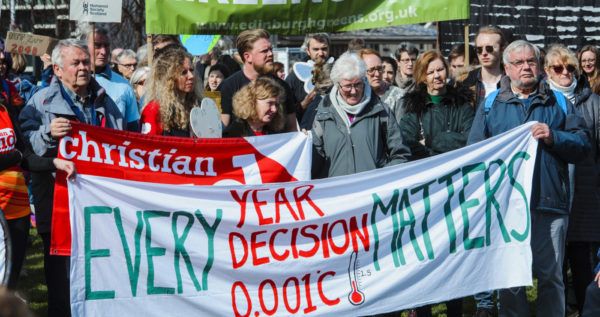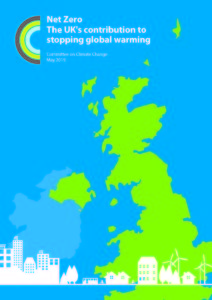
Scotland is now set to aim for net-zero climate emissions by 2045, but will that tackle the climate emergency?
The Scottish Government announced the new target this morning, responding to advice from their climate advisors, the UK Committee on Climate Change (CCC).
The advice on net-zero isn’t as strong as we would have liked (we are still calling for that net-zero date to be set for 2040 at the latest), but it is an important signal that we have to cut emissions right back across all parts of the Scottish economy. And it was good to see all parties in the Scottish Parliament saying they back stronger climate ambition during First Minister’s questions this afternoon (we just need to make sure they act on it!).
But 2045 is over 25 years away, and the climate emergency simply can’t wait. Millions of people, mostly in the global South, are already dealing with the impacts of climate change on a daily basis.
The climate emergency means we must act now
The UN climate experts at the IPCC have clearly said that to avoid going over critical danger threshold of 1.5ºC of warming, serious action to cut emissions in the next decade is crucial.
But buried beneath the headlines of the CCC report is the fact that the committee have recommended doing only 4% extra between now and 2030, hardly a fitting emergency response.
Frustratingly, they say (on pg 266 if you want to read it for yourself!) that “it has not yet been possible to undertake a detailed analysis” on what can and should be done to aim higher over the crucial next decade.
So how did they calculate a new target for 2030? Well, “Our assessment of the interim targets takes the approach of drawing a straight line from emissions in 2020 to the date of net-zero”. Yep, they got out a ruler and came up with 70%.
Last year, research we commissioned from Prof Kevin Anderson of the Tyndall climate research centre showed that if Scotland continues on the road we’re on, we would have used up all of our fair share of global emissions by 2030. In line with that report from Prof Anderson and our fair share of climate emissions, we’re calling for the 2030 target to be 86%.
What changes are needed
We know that it is possible to go further and faster in the next few years.
Earlier action to insulate homes, while building new homes to a higher standard; remove more dirty polluting vehicles from our roads and replace them with clean public transport, powered by 100% renewable electricity; no more gas boilers or oil tanks to heat our homes and start installing renewable heating; laws to cut emissions from polluting industrial agriculture; restoring our forests and peatlands.
And of course we need to immediately put an end to aviation expansion and new fossil fuel production.
A climate emergency requires a full emergency response, now. The Government should be immediately bringing together experts to identify the solutions, deliver a suite of urgent response measures and put new funding behind those plans.
All of you who have been campaigning, cajoling your MSPs and calling for greater action should be proud of pushing the debate on, but we can’t stop here. We need to make sure that, now they’ve recognised the climate emergency, they act fast.
As MSPs continue to work on Scotland’s new climate law, we must push them to consider this new advice as a starting point – not a limit on our plans. We know that we can do more and we know that we must do more.
If you want to find out more about this advice and what needs to happen next with the climate change bill to address the climate emergency, then join our webinar on Monday 13th May, 6.30 – 8pm.
Chip in to support our work to tackle climate change.
